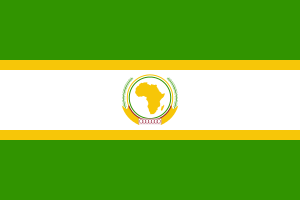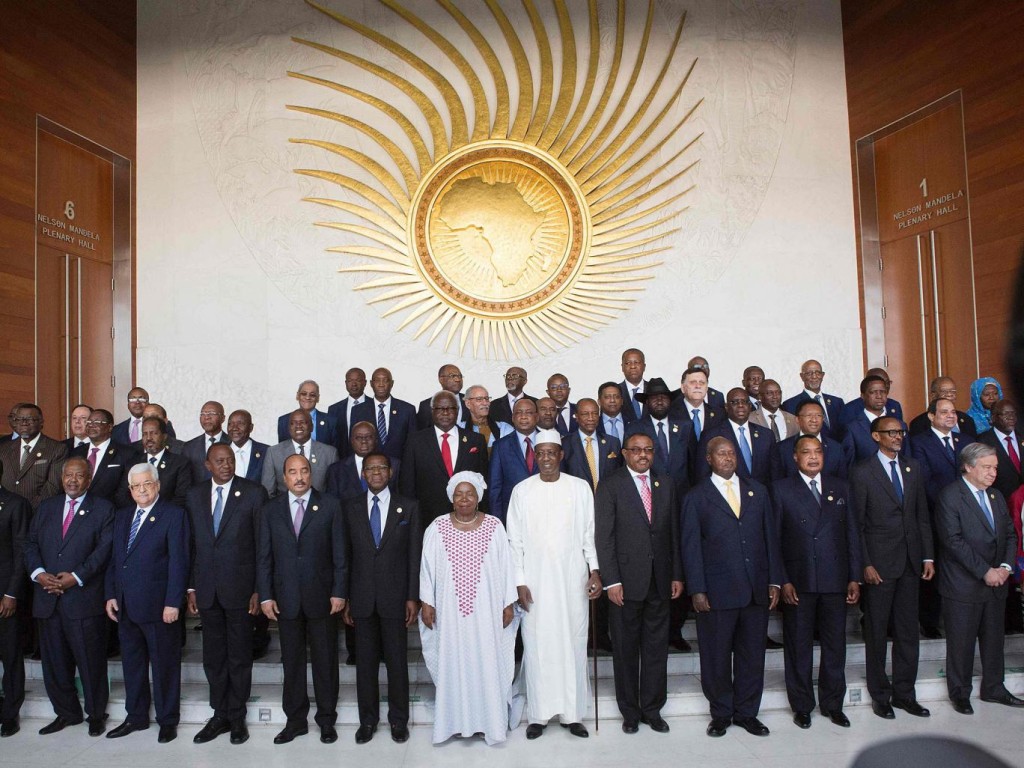
Those who once enslaved the continent’s people are barring them from entry as guests and refugees
At its 28th Summit held in Addis Ababa, Ethiopia, the African Union (AU) has selected a new chair of its commission for the 54-member continental organization. Chadian Foreign Minister Moussa Faki Mahamat was placed in the position after a highly politicized process lasting several months, spanning over three regions of the continent.
Chad, a country whose government maintains close relations with the former colonial power of France and the United States, won the endorsement of 39 states at the Summit.
Kenyan Foreign Minister Amina Mohamed, who was a favorite of many within the East Africa and across other regions, failed to secure enough support to prevail. The first woman AU Commission Chair, Dr. Nkosazana Dlamini-Zuma of the Republic of South Africa, did not seek a second term after serving an additional six months due to the unsuccessful previous attempts to elect her successor.
Mahamat won in the fourth round of voting by AU member-states. Mohamed was the runner up to the position.
The Chadian foreign minister, who is 55-years-old, served as prime minister of the Central African state during 2003-2005. He has close ties with long-time President Idris Deby and belongs to the ruling Patriotic Salvation Movement (MPS).
Born in the eastern region of Chad in the town of Biltine, Mahamat has been involved in national and continental politics for many years. In 1982, he joined the Democratic Revolutionary Council led by Acheikh Ibm Oumar after going into exile in the aftermath of the ascendancy of former leader Hissen Habre on June 7, 1982. He returned to the country in 1991 after Deby had taken power.
Subsequently, he was a director-general of at least two government ministries before becoming the head of the cabinet of President Deby’s government. He would later serve as Director of the National Sugar Company from 1996-1999.
In 2001, Mahamat ran the presidential campaign of Deby and was appointed the Minister of Public Works and Transport under the government of Prime Minister Haround Kabadi.
Outgoing Dlamini-Zuma was the also the first chair to emanate from the sub-continent where the African National Congress (ANC) of South Africa has maintained state power for over two decades. There is speculation in South Africa that the former commission chair will seek the leadership position in the ruling party although this has not been officially announced inside the country.
The Lack of National Security and Economic Stability
There are numerous challenging problems within the AU member-states in 2017. The African continent is facing a growing economic crisis resulting from the decline in oil, natural gas and other commodity prices on the international market. In many states, the national currencies are in rapid decline prompting inflationary pressure and a shortage of foreign exchange.
Also the role of the U.S. Africa Command looms large over the future of the continent amid uneasiness about the rise of Islamic extremism and terrorist attacks. Chad joined with the Federal Republic of Nigeria, Cameroon and Niger in a united military alliance to combat the Boko Haram group whose rebel attacks in the northeast of Nigeria have spread to border areas of these contiguous states.
Nonetheless, AFRICOM is involved with several West and Central African states under the guise of providing training and military resources ostensibly designed to enhance the security capacity of various AU member governments. A recent Economic Community of West African States (ECOWAS) intervention in Gambia was largely carried out by Senegal which has a joint cooperation agreement with AFRICOM and conducts annual maneuvers with the Pentagon entity in conjunction with NATO alongside numerous other military forces from throughout the region.
Although the Nigerian government announced in December that Boko Haram had been driven from its last major stronghold in the Sambisa Forest, asymmetric attacks have continued in some areas. Economic difficulties in the Lake Chad border regions have also been cited as providing a basis for recruitment by Boko Haram.
The crisis of climate change resulting in the shortages of water poses a profound challenge to the region. According to an article published by Deutsche Welle: “’Lake Chad is dying.’ President Mahamadou Issoufou of Niger was peremptory in his speech at the opening of the Paris Climate Conference on Monday, November 30 (2015). He was seconded by his counterparts from Nigeria, Chad and Cameroon, all neighboring countries around Lake Chad. Once, the landlocked lake measured more than 25,000 square kilometers (9,700 square miles). Now it covers just 1,500 square kilometers (580 square miles).”
This same report continues emphasizing that: “Droughts in the 1970s and 1980s caused Lake Chad to dry up almost completely, reducing reservoirs and putting the livelihood of millions at risk. ’In Nigeria’s northeastern town of Baga there was an inn called ‘By the Harbor.’ But already in those days the harbor was three kilometers (1.9 miles) away,’ recalls Norbert Cyffer. He used to be a lecturer at the University of Maiduguri in northern Nigeria in the 70s. This allowed him to observe how the water in Lake Chad shrank to a tenth of its original volume over the years.”
In addition to the military questions and Pentagon interventions, the International Criminal Court (ICC) and Africa’s participation within it has been debated for the last four years. Kenya, an East African state targeted by the ICC, has expressed a desire to withdraw from the Rome Statue, which governs the judicial body based in the Netherlands. The Kenyan President and Vice President Uhuru Kenyatta and William Ruto respectively were both under investigation by the ICC. The case against Kenyatta was dismissed through lack of evidence. Ruto later had his charges vacated as well in April of 2016.
The ICC has been exclusively pre-occupied with the investigation, indictment and prosecution of African presidents and rebel leaders. At present, the ousted President of Ivory Coast, Laurent Gbagbo, is imprisoned in the Netherlands facing trail by the ICC. Gbagbo was overthrown by French commandos backed up by rebel units in 2011. He was transported into exile while the government of the former International Monetary Fund (IMF) functionary, President Alassane Ouattara, was installed in the agricultural and oil producing West African country.
Kenya’s opposition to the actions of the ICC may have played a role in the failure of its foreign minister to acquire the post of commission chair. The current leaders of Kenya were not the candidates favored by the U.S. and Britain during the elections in 2013.
The North African monarchy of Morocco, which has close ties with the U.S., is seeking readmission into the AU after withdrawing from its predecessor, the Organization of African Unity (OAU) in 1984, when the body recognized the right to self-determination and independence for the people of the Western Sahara.
The Saharawi Arab Democratic Republic, headed by the Polisario Front, is currently recognized by the AU as the legitimate government in exile. This area of the northern Sahara has been occupied by Morocco since 1976 when Spain withdrew its claim as a colonial power over the territory.
It seems highly unlikely that the AU will reverse its position on the Western Sahara. The continental body has been committed since its inception to national independence for former colonized states and peoples.
U.S. Immigration Policy and the AU
Dlamini-Zuma during the AU Summit criticized the U.S. administration of President Donald Trump for his executive orders banning entry into America from three Africa states: Libya, Sudan and Somalia. Noting that it was the U.S. which had enslaved Africans for over two centuries is now barring its citizens from access into the country on spurious grounds. These African states along with Yemen, Syria, Iraq and Iran in the Middle East have rejected the notion that their nationals constitute a threat to U.S. security.
In light of the taking of power by Trump, Dlamini-Zuma described the situation involving U.S.-Africa relations as turbulent. “The very country to which many of our people were taken as slaves during the transatlantic slave trade has now decided to ban refugees from some of our countries,” said Dlamini-Zuma. (Independent, UK, Jan. 30)
The consistent precarious status of diplomatic, economic and military relations with the imperialist states cannot be overcome amid the ongoing dependency on the part of African governments on these former colonial and present neo-colonial powers. Until the continent can chart its own course, Africa and its institutions will remain marginalized in regard to fostering development and exerting continental influence in world affairs.
